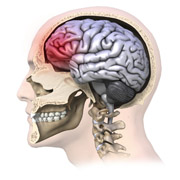Research and Innovation, UNL Office of

Center for Brain, Biology, and Behavior: Faculty Publications
Document Type
Article
Date of this Version
2009
Citation
Published in final edited form as: Dev Neuropsychol. 2009 ; 34(5): 629–649. doi:10.1080/87565640903133632. PMCID: PMC3468947
Abstract
Objective—To determine whether minimal snoring is benign in children.
Procedure—22 rarely snoring children (mean age=6.9 years, 11 females) and age- and sexmatched controls participated in an auditory oddball task wearing 128-electrode nets. Parents completed Conner’s Parent Rating Scales-Revised Long (CPRS-R:L).
Results—Snorers scored significantly higher on 4 CPRS-R:L subscales. Stepwise regression indicated that two ERP variables from a region of the ERP that peaked at 844 ms post-stimulus onset predicted CPRS-R:L ADHD Index scores.
Conclusions—Occasional snorers according to parental report do exhibit ADHD-like behaviors. Basic sensory processing is longer than in controls, suggesting that delayed frontal activation requires more effort in snorers.
Included in
Behavior and Behavior Mechanisms Commons, Nervous System Commons, Other Analytical, Diagnostic and Therapeutic Techniques and Equipment Commons, Other Neuroscience and Neurobiology Commons, Other Psychiatry and Psychology Commons, Rehabilitation and Therapy Commons, Sports Sciences Commons


Comments
copyright 2009 Taylor & Francis.